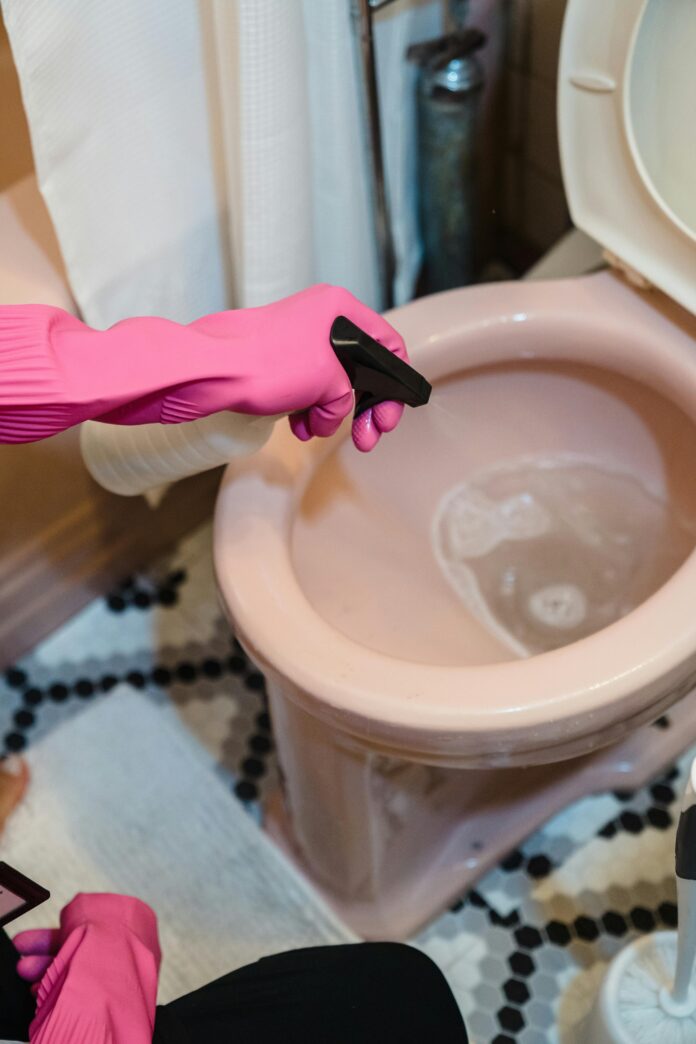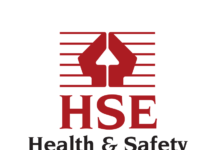Which household items need to be cleaned more frequently during summer?
-
Toilet and flush handle
During the summer, many of us will host summer parties in our homes, but with that comes an influx of guests needing to visit the bathroom.
With this in mind, it’s important to disinfect areas of your toilet more regularly. Grab a pair of yellow rubber gloves to prevent your skin coming into contact with harmful chemicals and begin coating the toilet bowls entire interior in a product formulated to clean and disinfect.
Use a toilet brush with the cleaner to scrub away unwelcoming stains around the inside of the toilet bowl, let the formula sit for five minutes and flush away. Don’t forget to clean your toilet seat too, by using the cleaner to wash both sides of the seat thoroughly.
Be sure not to forget to clean your toilet flush handle, a highly contaminated spot, an extra wipe with a disinfectant wipe as well as the cleaner and allow it to dry.
-
Bed sheets
With temperatures exceeding their average, it’s no surprise that people are more inclined to get hot and sweaty during a summer’s night. Ensuring that bedding in your household is regularly cleaned every one or two weeks is recommended as sweat can increase the likelihood of bacteria building, pest parasites, odours and dust mites.
In addition to the above, summer can also bring the added issue of hay fever and pollen, both of which can cause allergens in your bed, causing congestion. It’s recommended to wash your sheets above at 60 celsius to ensure all dust mites are killed throughout the wash.
-
Barbecues
As soon as the sun makes an appearance, many of us are eager to trial out our barbecue skills, therefore it’s no surprise that grills and outdoor cooking equipment need to be washed more frequently in the warmer months.
Barbecues collect grease, food particles and debris, therefore to prevent food contamination and to keep your grill functioning properly, it’s advised to clean the grates and exterior of your barbecue after every use, as well as carrying out a deep clean at least once per month.
Carefully scrape off the food residue whilst the grill is still hot without touching the metal as this is the time burnt food will loosen the easiest. Then, once the grill cools, use a solution of washing up liquid and warm water to budge the last remaining food particles. It’s important to dry your grill immediately after cleaning to prevent rusting.
In place of more conventional methods, household ingredients can also be used to clean barbecues, such as onions, coffee and aluminium foil.
How to clean your barbecue using onions:
-
Preheat your grill for a few minutes to remove any stubborn food particles, making it easier to clean.
-
Prepare the onion, by cutting half a large onion in half, leaving the skin on. Pierce one side of the onion with a barbecue fork to maintain a secure grip.
-
Scrape the grill grates by using a grill brush to remove any debris.
-
With the cut side of the onion facing down, firmly rub the onion half over the hot grates, with the natural compounds in the onion breaking down the grease and grime. The onion texture will work as a natural scrub, so be sure to cover all areas of the grill.
-
Once you’ve finished, safely dispose of the onion.
How to clean your barbecue using coffee:
-
Brew a pot of coffee and pour it safely into a large bucket or container.
-
Remove the grates from the grill once they are cool and submerge the grates in the coffee.
-
Let the grates sit for one hour. The acid in the coffee should break down any debris and grease.
-
Thoroughly rinse the grill grates to remove the coffee. Dry the grates before replacing them.
-
Outdoor water sources
If you have a bird bath in your garden, make sure that you replace the water at least once per week to ensure it stays fresh, as water can be sacred for birds in hot months.
If your bird bath turns red or green with algae, use a hose and scrubbing brush to remove the dirt. Weak disinfectants can also be used, though make sure the source is rinsed thoroughly afterwards
Other water sources such as outdoor faucets, gutters, and buckets provide a breeding site and habitats for mosquitoes and other insects during summer, therefore it’s also very important to ensure debris around water sources is regularly maintained.
Baking soda and white vinegar are a recommended alternative to wash your toilet for removing hard stains, if you’d prefer to use more natural ingredients.
-
Air Conditioning and Vents
With air conditioning being used more throughout the warmer months, it’s very important to clean air vents more regularly to improve air quality in your home, which can in turn reduce symptoms of allergies.
If you find any dust or debris in your air vent, use a vacuum cleaner with a small brush attachment to remove it or if a more indepth clean is needed, remove the vents and soak in hot, soapy water.
Credit https://www.clearitwaste.co.uk/

| [donate]
| Help keep news FREE for our readersSupporting your local community newspaper/online news outlet is crucial now more than ever. If you believe in independent journalism,then consider making a valuable contribution by making a one-time or monthly donation. We operate in rural areas where providing unbiased news can be challenging. |


















